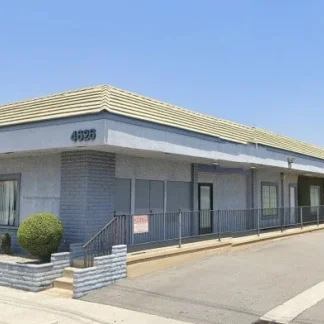David and Margaret - Family Services
David & Margaret Youth and Family Services, located in La Verne, California,...
NCADD - National Council on Alcohol and Drug Dependency is an alcohol and drug rehab organization in Covina, California that offers prevention, treatment, and education to the community. Their programs are designed to help prevent addiction and support those who are already addicted.
NCADD – National Council on Alcohol and Drug Dependency teaches programs in community centers, organizations, and schools. Their services are offered on an outpatient basis. Peer-led services, tobacco cessation programming, and skills classes are provided. Youth are encouraged to seek help if they are in need.
NCADD – National Council on Alcohol and Drug Dependency accepts most insurance plans, including Amerigroup, Anthem, Blue Cross Blue Shield, Cigna, United Healthcare, Magellan, TRICARE, ComPsych, and Kaiser. Out of network benefits may vary, so it is important to verify insurance coverage prior to enrolling in treatment.
Contact us for more information: (626) 331-5316

Connect with NCADD - National Council on Alcohol and Drug Dependency by calling their admissions team directly.
(626) 331-5316 Website Get DirectionsThe Substance Abuse and Mental Health Services Administration (SAMHSA) is a branch of the U.S. Department of Health and Human Services. Established in 1992 by congress, SAMHSA's mission is to reduce the impact of substance abuse and mental illness on American's communities.
SAMHSA Listed: Yes
State Licenses are permits issued by government agencies that allow rehab organizations to conduct business legally within a certain geographical area. Typically, the kind of program a rehab facility offers, along with its physical location, determines which licenses are required to operate legally.
State License: California License Number: 355
Group therapy is any therapeutic work that happens in a group (not one-on-one). There are a number of different group therapy modalities, including support groups, experiential therapy, psycho-education, and more. Group therapy involves treatment as well as processing interaction between group members.
In individual therapy, a patient meets one-on-one with a trained psychologist or counselor. Therapy is a pivotal part of effective substance abuse treatment, as it often covers root causes of addiction, including challenges faced by the patient in their social, family, and work/school life.
In individual therapy, a patient meets one-on-one with a trained psychologist or counselor. Therapy is a pivotal part of effective substance abuse treatment, as it often covers root causes of addiction, including challenges faced by the patient in their social, family, and work/school life.
David & Margaret Youth and Family Services, located in La Verne, California,...
Second Chance for Teens and Adults, located in Glendora, California, offers holi...
Glendora Oaks Behavioral Health Hospital provides mental health care and addicti...
Behavioral Health Services (BHS) - American Recovery Center, located in Pomona, ...